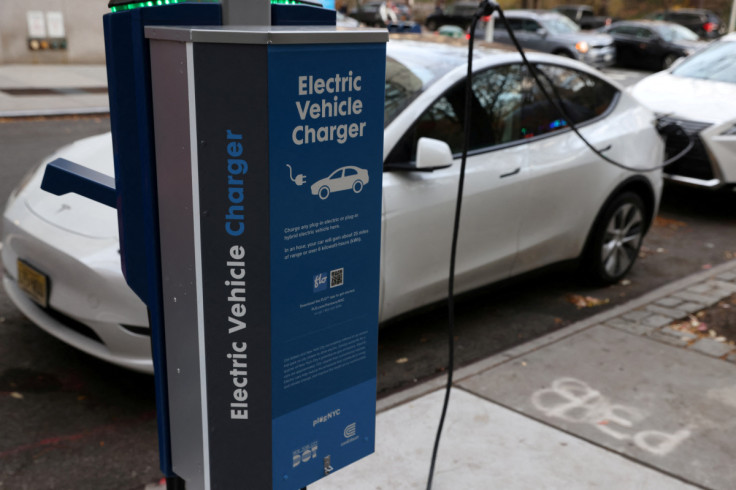
KEY POINTS
- The revised regulation is expected to result in EVs accounting for less than 60% of total vehicles by 2030
- A trade group representing GM, Toyota and others called the regulation "neither reasonable nor achievable"
- UAW has also raised concerns about the EV transition requirements' impact on auto industry workers
U.S. President Joe Biden is reportedly considering relaxing a vehicle emission rule that his administration proposed last year, which could give automakers more time to meet strict electric vehicle (EV) transition requirements.
Under the redrafted final regulation, the Environmental Protection Agency (EPA) should slow its proposed annual emissions requirements within the next six years, which is expected to result in EVs accounting for less than 60% of total vehicles produced by the year 2030, Reuters reported Sunday, citing two sources.
The EPA is also considering to delay its transition requirements until after 2030, CNN reported, citing two people familiar with the plan.
The EPA proposed in April last year that new vehicle emissions should be reduced by 56% for the period of 2027-2032. To achieve this target, EVs were expected to constitute 60% of the new vehicle production of automakers by 2030.
A few months later, the Alliance for Automotive Innovation (AAI), a trade group that represents some of the world's biggest automakers, including General Motors and Toyota, said in a memo that the EPA's proposed rule was "neither reasonable nor achievable in the timeframe provided." They noted that the agency's requirements "cannot be met without substantially increasing the cost of all vehicles, reducing consumer choice and disadvantaging major portions of the U.S. population and territory."
The updated proposal is not yet final and is expected to be released sometime in the spring.
The Biden administration's reported change of heart is considered a "concession" to automakers and labor unions, according to The New York Times, which first reported about the change.
The United Auto Workers (UAW) union, which is a major labor union in the auto industry, endorsed the Democratic president in January. The said group has been raising concerns about the impact of an EV shift to employees. The union has long been concerned that the EV transition could result in jobs at engine and transmission plants phased out in favor of low-wage battery jobs.
Ali Zaidi, White House national climate adviser, said in a statement that the Biden government continues to harness smart investments and standards "to ensure the U.S. workers will lead, not follow, the global auto sector."







